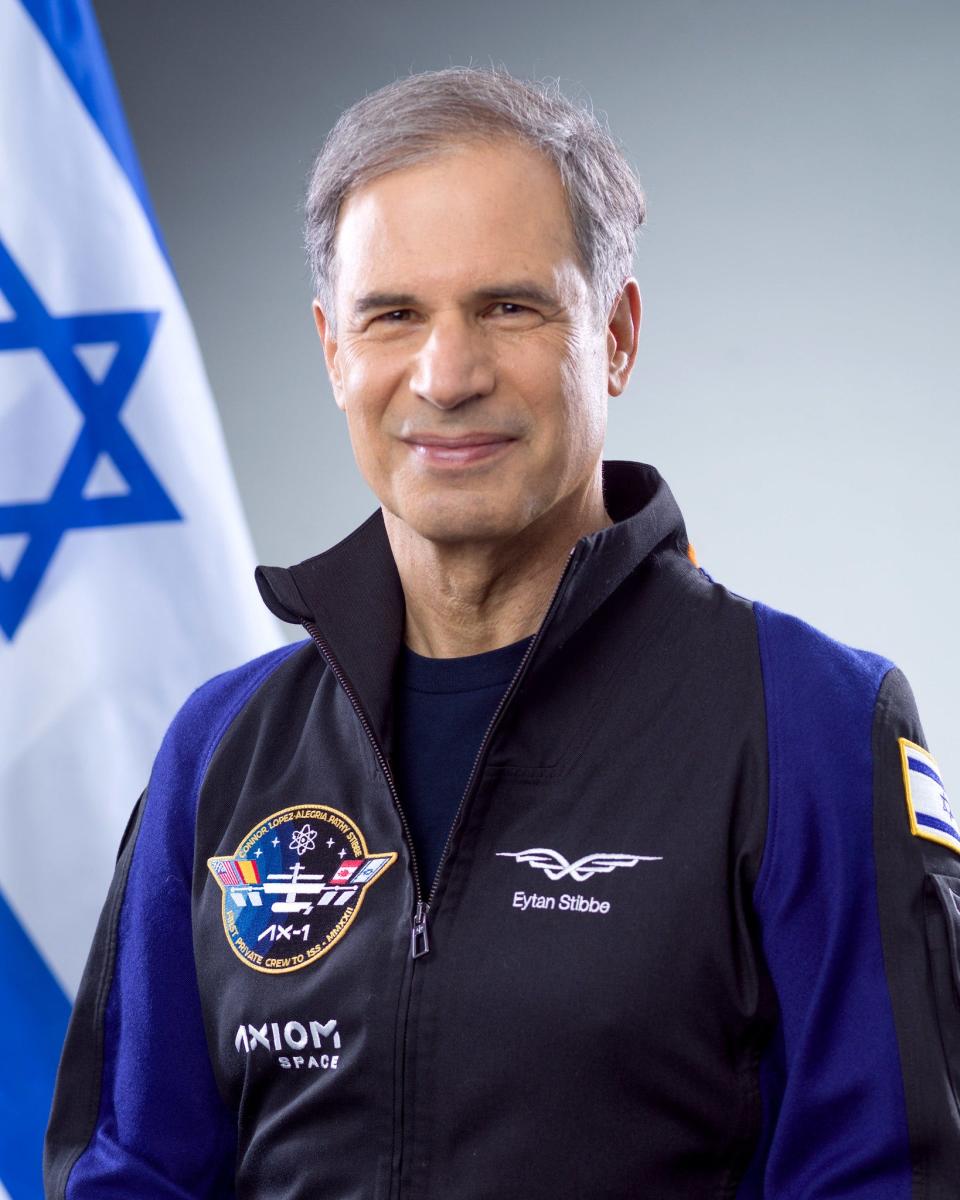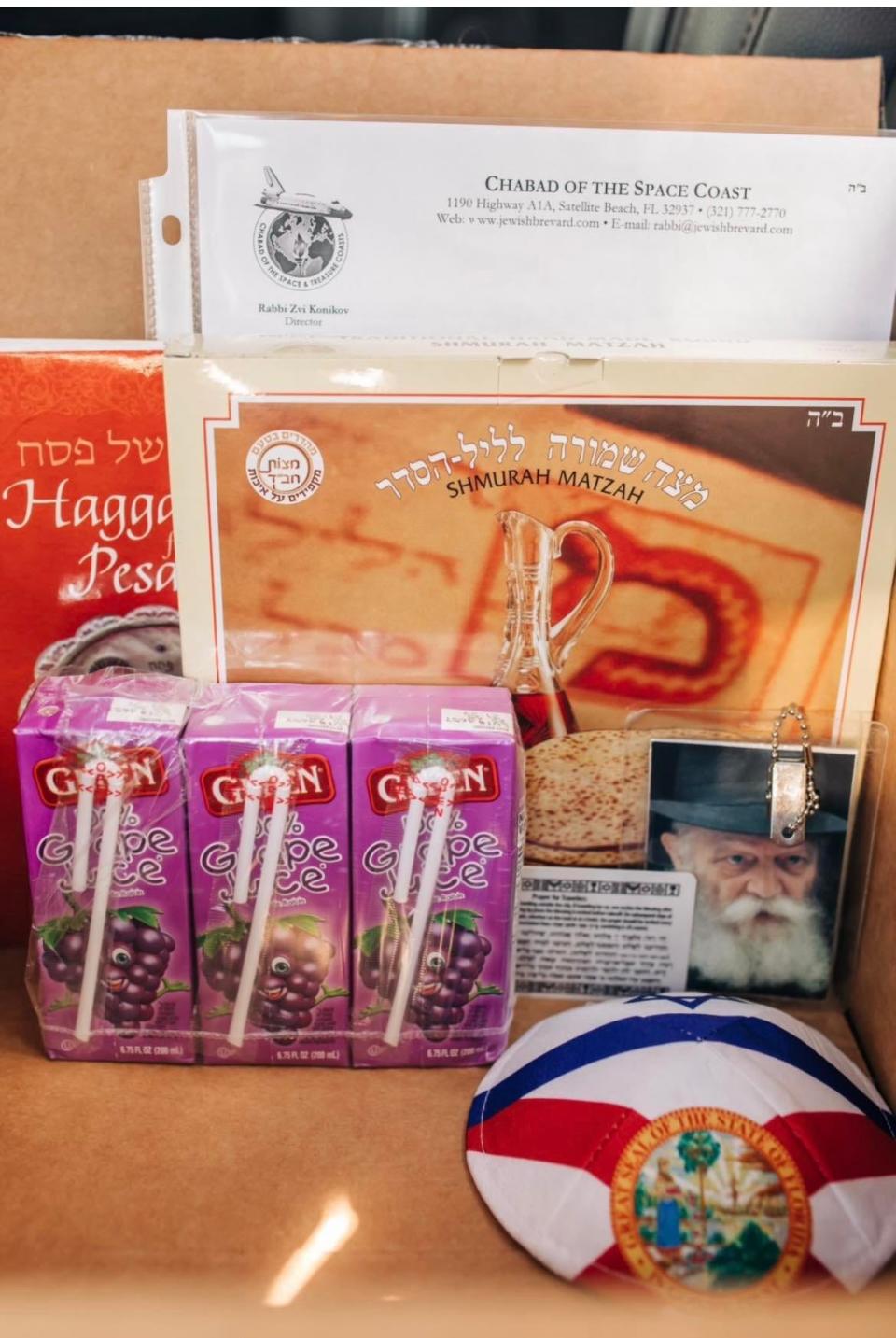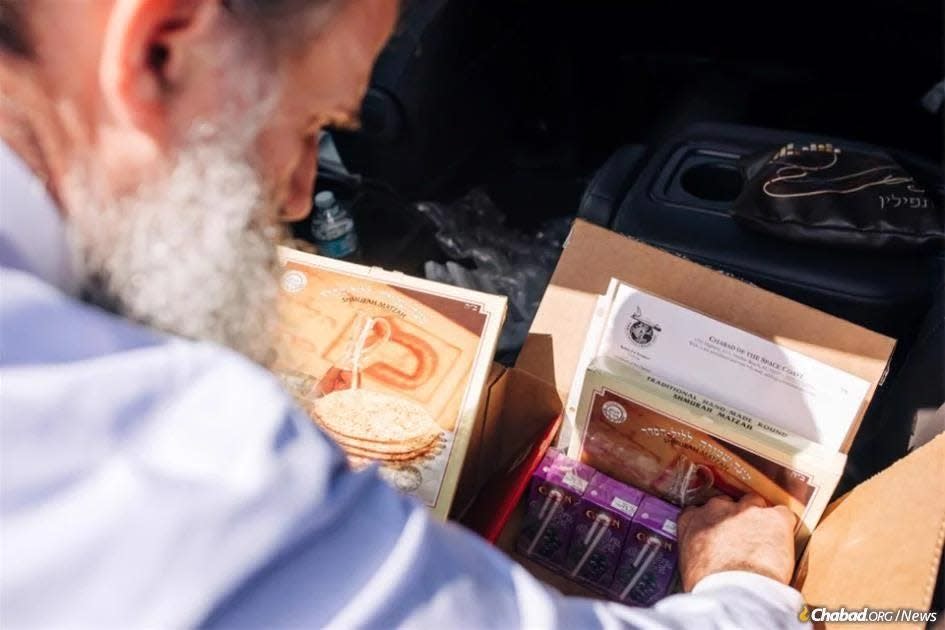Passover in Space: Brevard rabbi delivers special matzah to Israeli astronaut in time for holiday
It will be a time different from all others.
This Friday evening as the sun settles over Florida, millions will be celebrating Passover on earth while in the heavens, Israeli astronaut Eytan Stibbe recites blessings over unleavened bread far away from home.
Stibbe, the second Israeli astronaut to journey into space, will be using hand-made shemurah — which means guarded in Hebrew — matzah made from wheat gleaned from fields in Ukraine and given to him by Rabbi Zvi Konikov of the Chabad of the Space Coast synagogue based in Satellite Beach.
"This is quite different," Konikov told FLORIDA TODAY.
“When I found out that Stibbe would be going to space, I knew how difficult it would be in regards to eating kosher, so with that in mind we got him a small box of shemurah matzah that would fit in a pouch for him to take on his mission."
The 64-year-old former Israeli Air Force pilot was one of four astronauts on SpaceX’s Crew Dragon Endeavour that lifted off Friday from the Kennedy Space Center after several delays.
The astronauts docked with the station Saturday for the privately-funded, 10-day mission overseen by the Houston-based company Axiom Space. Stibbe, a philanthropist, is conducting several scientific experiments in orbit.
The mission's timing coincides with the eight-day Jewish festival that commemorates the Exodus of the Hebrews from Egypt nearly 3,500 years ago.

The Hebrews were commanded by God to bake unleavened bread in haste for the journey ahead to the Promised Land.
Passover in space will be marked using Florida time, said Konikov, who consulted several other rabbis about the timing.
"It gets very interesting," Konikov said. "I warned him not to open the door for Elijah the prophet," Konikov said with his trademark humor, alluding to the Jewish tradition that the prophet would one day return during the Seder.
The brittle matzoh delivered to Stibbe by Konikov is used during the ritual meal typically held at home known as the Seder, where four cups of wine are also used to note God’s deliverance from bondage.

“The shemurah matzoh is very big in Chabad...most of the matzoh we get is from Ukraine, so now it’s hard to come by because of the war,” said Konikov, who also freely distributed the matzoh packages to members and others in Brevard last week.
‘A New Thing’
Stibbe, during a teleconference last week, called the idea of celebrating Passover while spinning hundreds of miles above the earth, 'a new thing.' The festival has been held across the globe from the battlefields of the U.S. Civil War to remote locations like the Himalayas.
Passover on the Space Coast: Masks and matzo to mark the arrival of Passover for Space Coast
Brevard rabbi: Passover creates teachable moments, brings hope of freedom
“The seder, Passover, is all about freedom which is a value we celebrate annually and remind ourselves about the importance of freedom, (which is) based on a 3,000-year-old story when Moses said the famous sentence ‘Let my people go’, ” Stibbe said, according to the Chabad.org.
Konikov also sees it as an extraordinary moment of expression as the world struggles for normalcy from the COVID pandemic and now, a war in Ukraine that threatens the global order.
Even the matzah being eaten is from a place of struggle, he pointed out.

“What really needs to be at the forefront of our minds is that we are in the hands of God and God is the one who took us out of a place of pain and suffering from Egypt,” Konikov said.
“The meaning of the matzah is that we remain humble, that the physical reality doesn't show us that our lives are secure. It could change at any minute. That’s why the matzah is broken, and yet, we eat it wherever our journey takes us to remember that the Creator of the world will make sure we get to our destination safely and securely,” the rabbi said.

‘Rabbi to the Astronauts’
It is not the first time Konikov has given guidance to astronauts about keeping aspects of Jewish Law in space.
In 2002, the rabbi talked with Israeli astronaut Ilan Ramon, a payload specialist assigned to the ill-fated space shuttle Columbia, who had initially approached Nasa about having kosher food during his space mission. He later talked with Konikov about keeping Shabbat rituals in outer space where astronauts see sunrises and sunsets multiple times in the course of 24 hours.
The space shuttle Columbia — whose launch was witnessed by Konikov and dozens of others in a special delegation at the space center, exploded on reentry on Feb. 1, 2003. All seven astronauts, including Ramon, died.
Before the Axiom mission delays, Konikov had invited Stibbe, who was a close friend of Ramon, to attend the April 15 Passover seder at the Chabad Center in Satellite Beach. Then a week before the new launch date, the two connected again with Stibbe asking the rabbi to bring the shemurah matzoh to the quarantine site.
The astronaut was also given a kippah with Florida's state seal and a small card with Psalm 121 to mark the birthday of the Rebbe Menachem Mendel Schneerson, the Chabad's influential leader who died in 1994.
The matzah was delivered to the mission specialist along with four containers of boxed, kosher grape juice that could be punctured with a straw. In space, astronauts are mindful of potential crumbs and even liquid floating away in the weightlessness of space. Stibbe had said he would take a kiddush cup to the space station also.
“The grape juice may not have made it, I only got confirmation that he received the matzah. I sent him a copy of the Haggadah also,” Konikov said of the book of prayers, psalms, and insights on the Exodus read at the Seder.
‘Faith in Space’
And while it will be a unique moment in the history of Passover, it is not the only religious observance to take place in space. For decades, other holidays like Thanksgiving and Christmas have been marked by decorations, prayers, and readings.
Then there is Buzz Aldrin, the second man to touch ground on the moon.
Nearly 53 years ago, Aldrin sat on the lunar lander Eagle and using a silver cup, a small pouch of wine, and a wafer prayed and had Communion, a ceremony with roots in the biblical Passover.
Konikov pointed out that faith is a matter that travels with the individual.
Passover is about going from here to there, he pointed out.
“Stibbe mentioned the idea of the Exodus and that while the mission is a beautiful thing, it will be hard for him to be without his family. So travel, including space travel, really touches on the overall theme of Passover. People were running for their lives in the first Exodus, so many left without food, not knowing where they would be," he said.
"It shows you how this saga of matzah is continuing, repeating itself," Konikov said.
J.D. Gallop is a Criminal Justice/Breaking News Reporter at FLORIDA TODAY. Contact Gallop at 321-917-4641 or jgallop@floridatoday.com. Twitter: @JDGallop.
Support local journalism. Subscribe today.
This article originally appeared on Florida Today: Florida rabbi provides Israeli astronaut on ISS with Passover goods

